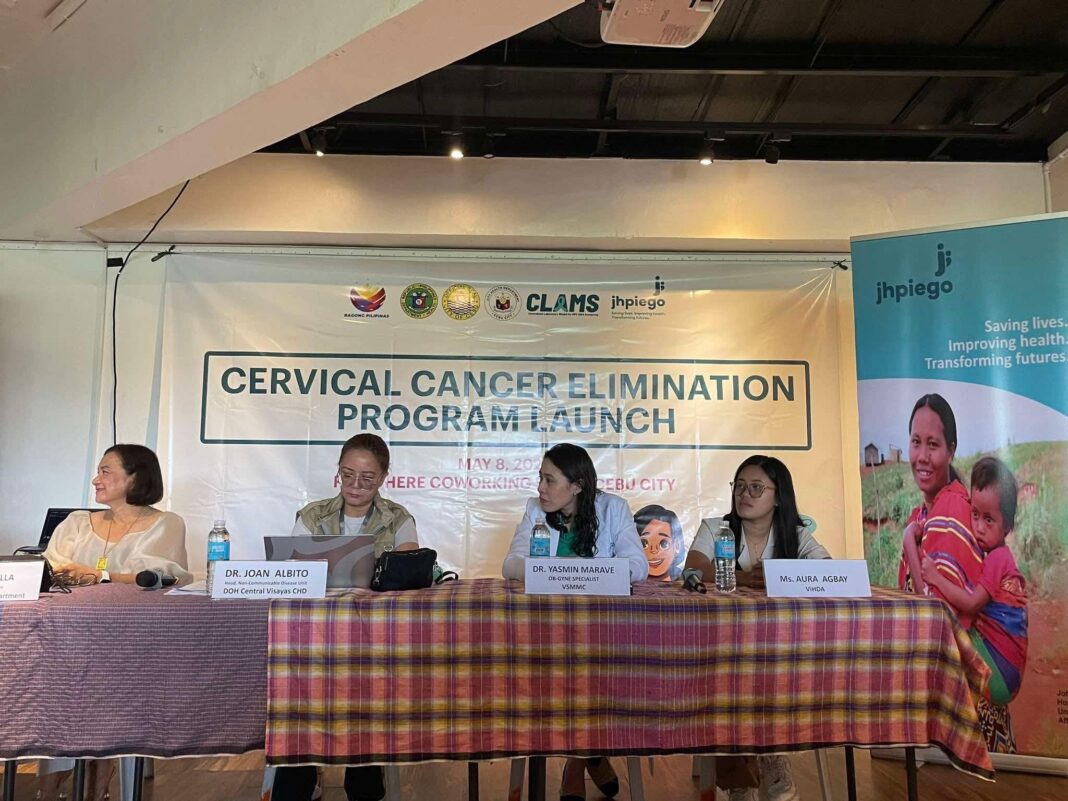Cebu City, Philippines – Cebu City took a significant step in the fight against cervical cancer with the successful launch of the Cervical Cancer Elimination (CCE) Campaign. The event, held on May 8, 2025, was spearheaded by the Cebu City Health Department and the Department of Health (DOH) Region 7, in collaboration with Jhpiego Philippines through the Centralized Model for HPV DNA Screening (CLAMS) Project using the Cobas system, and with support from Olivia Rodrigo’s Fund 4 Good—funded by proceeds from her GUTS World Tour in the Philippines. It highlighted the urgent need to address cervical cancer through prevention, early detection, and timely treatment.
Cervical cancer remains the second most common cancer among women in the Philippines and a leading cause of mortality among women living with HIV. Every day, 12 women in the country lose their lives to this preventable disease. The high rates of morbidity and mortality are largely due to low screening and vaccination coverage, as well as delayed treatment of precancerous lesions.

“Cervical cancer is highly preventable, yet it continues to claim the lives of many Filipino women. Through initiatives like this, we are bringing life-saving services closer to communities. Early screening and vaccination can make the difference between life and death,” said Dr. Joshua Brillantes, Regional Director of DOH Region 7.
In line with this goal, the launch aimed to sustain gains in expanding equitable access to cervical cancer screening services and strengthening programs at the primary health care level. Key objectives included raising public awareness about cervical cancer and effective prevention strategies, introducing HPV DNA self-collection, and reinforcing partnerships among government, non-government organizations, and the private sector.
“In launching this campaign here in Cebu, we are strengthening our collective efforts towards eliminating cervical cancer as a public health problem,” said Dr. Ingrid Magnata, Country Program Manager of Jhpiego Philippines.
Alongside the press launch, the Cebu City Health Department conducted free cervical cancer screening services using HPV DNA testing. The activity provided women with immediate access to early detection services and critical information.
To ensure that women who screen positive receive timely and effective care, CLAMS project through Jhpiego is donating thermal ablation devices to selected Cebu City Health Department primary health care centers, enabling access to convenient, free, and quality treatment services at the community level.
The launch also featured the pilot demonstration of iSCerv, an innovative digital platform for cervical cancer screening and patient tracking. The platform aims to streamline service delivery and ensure women are followed through the continuum of care.
Officials from the Cebu City Health Department also emphasized their commitment to sustaining the effort at the local level. “Cebu City is ready to lead by example,” said Dr. Daisy Villa, Cebu City Health Officer. “By bringing free cervical cancer screenings and education directly to our barangays, we are making sure that women, regardless of their background, have access to life-saving services.”
Jhpiego reaffirmed its commitment to supporting the Philippine government’s cervical cancer elimination efforts, a partnership formalized through a memorandum of agreement with the Department of Health until 2030.
“We are proud to work alongside our public and private partners in this vital effort. Through collaboration, community engagement, and sustained investment in prevention and early treatment, we can ensure that no woman dies of cervical cancer,” Dr. Magnata added.
The event concluded with renewed energy and commitment among stakeholders to push for a future where cervical cancer is eliminated as a public health threat.


